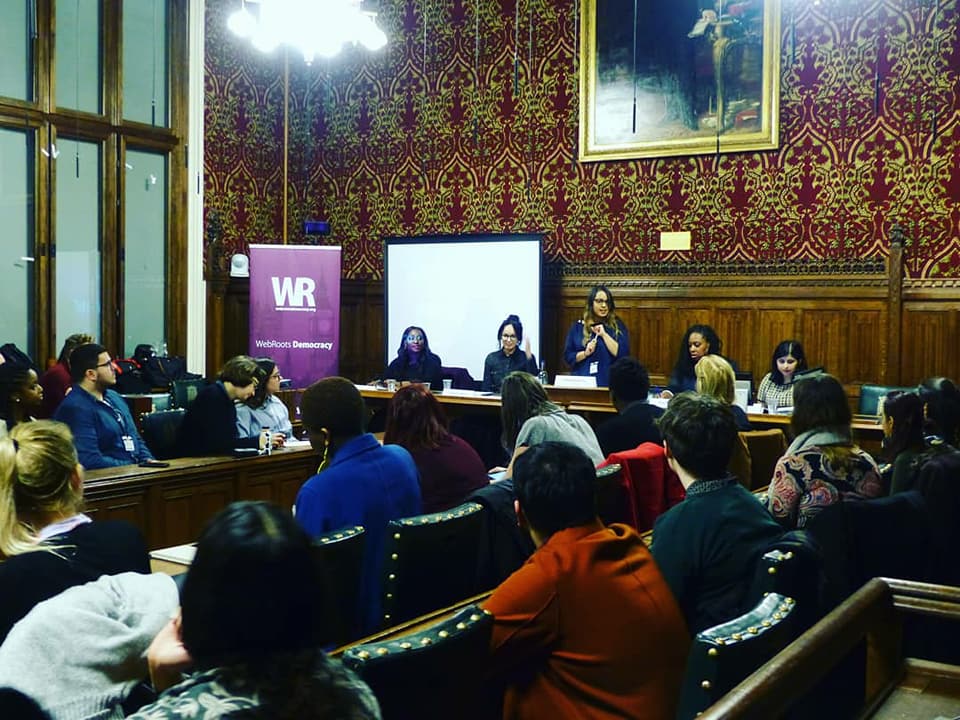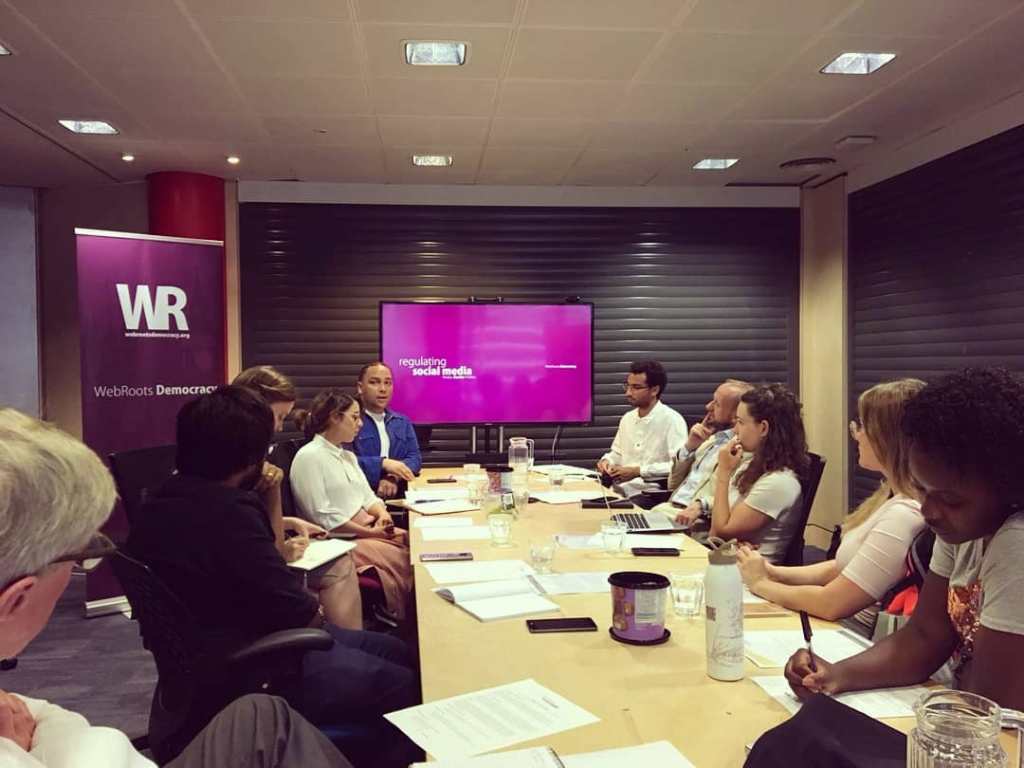By Areeq Chowdhury.
I founded WebRoots Democracy in May 2014 from a rented studio flat above a travel agency in Leyton, East London, where I was living at the time. ‘Founding’ it involved publishing this website on a laptop tethered to my mobile phone’s 4G internet connection. At that time, society spoke of the internet and its relationship with democracy in a positive, optimistic light.
When I began researching it at university in 2012, most conversations centred around e-petitions, accountability, or the Arab Spring. Technology was viewed as a great driver of democracy, bringing people together and pushing back against authoritarianism. Fast-forward six and a half years, the internet is now being described as “the single biggest threat to our democracy” and the travel agency in Leyton has been replaced by a barbershop.

This techno-optimism has been a consistent theme throughout the lifespan of WebRoots Democracy. Our work started with a single focus: to explore the potential of online voting, consider how it can be made to work, and to call for pilots of the technology. In many respects, it was the perfect introduction. Online voting is a reform which polarises opinion. On the one hand, there are those who believe it will modernise democracy, making it accessible for all. On the other, there are those who believe it will undermine democracy and is impossible to achieve.
This polarisation between techno-optimism and techno-fatalism is one which, we would go on to learn, exists across a whole host of discussions around the internet. Our work over these six and a half years has been to cut through this polarisation and bring people together to discuss how technology can be governed and designed in a manner that works for democracy and not against it.

The people who came together to join this mission are the greatest highlight. Each of them are incredibly bright and fundamentally kind. We would meet over pizza wherever we could find space. Often this would be at Newspeak House (the invaluable home of civic technology in Shoreditch) or at TechHub London (an incredible co-working space brimming with technologists). Our work involved organising roundtables, putting together workshops, submitting FOIs, analysing data, writing reports, and hosting events.
One memorable roundtable brought together disability activists and experts at London’s City Hall to discuss how technology could build an inclusive democracy. A workshop we held in Parliament brought together influential voices to explore the relationship between the internet and Islamophobia. An event we organised on blockchain – at the height of a Bitcoin hype – had people queuing up out on the street. During the pandemic, these activities took place online, most recently with our work investigating the racial bias challenges involved with the police’s use of facial recognition technology.

In October 2016, we rebranded as a ‘think tank’ which is a more formal description for the work we were already doing: trying to inform public policy discussion through expert research and seminars. We did this incredibly well. Across our various reports and events, we brought together academia, industry, and civil society to discuss policy. We designed the ‘Cratos Principles’, developed the notion of a ‘Civil Internet Tax’, and championed a focus on systemic discrimination during discussions of algorithmic bias.
In doing so, our work drew the attention of leading politicians as well as domestic and international media outlets. This was no mean feat. Most think tanks begin with capital – be it money, power, or connections. Ours didn’t. ‘WebRoots Democracy’ – the name – is a play on the phrase ‘grassroots democracy’ and we operated very much as a grassroots organisation. Our achievements were underpinned by the support of a whole community of people.

We bring our work to a close having done so much more than could ever have been conceived or imagined in those early days. We marked the occasion in November 2020 with the ‘WebRoots Democracy Festival’, an amazing week of events with leading thinkers, writers, and activists discussing the most pressing issues facing technology and democracy. As I said during one of those events: while the organisation has ended, the movement lives on.
There is so much more to be done to understand the true potential and challenges of the internet for democracy and even more to do when it comes to informing the public and the people in power. Whilst I have no doubt that some of our work will age badly, I know that the community we created will age well. I am pleased to say that by reading this article and visiting our website, you have become a member of that vital community.
Areeq Chowdhury is the founder of WebRoots Democracy.
Click here, to learn more about WebRoots Democracy’s work and here to experience the WebRoots Democracy Festival.

